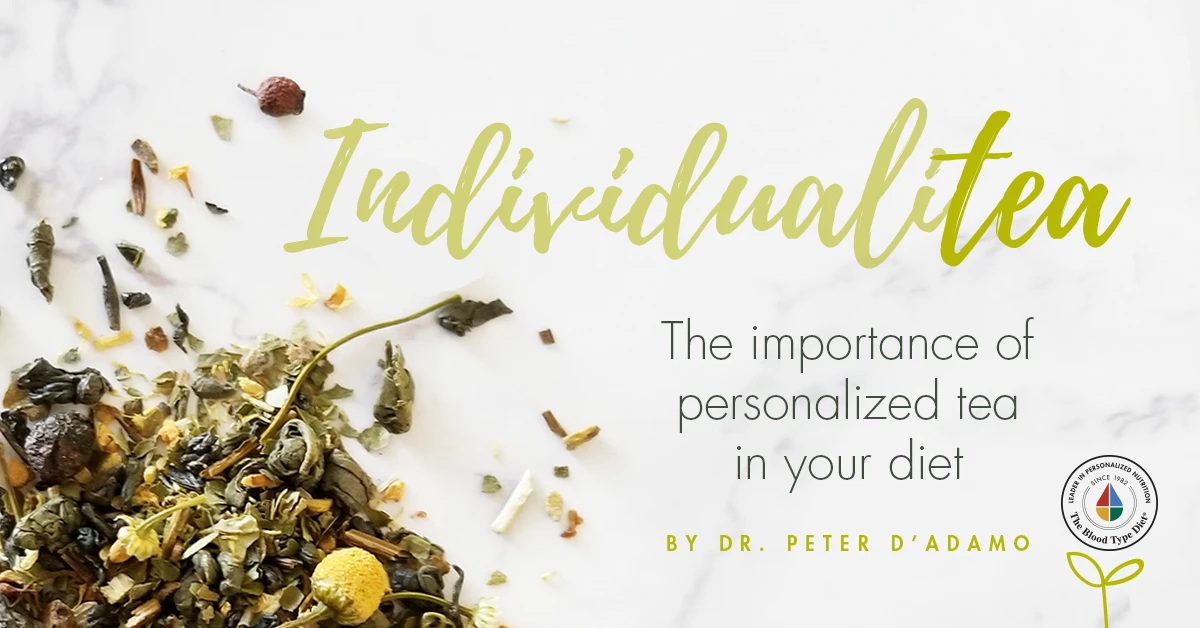
Many traditional caffeinated teas are derived from the Camellia sinensis plant, an evergreen bush indigenous to both China and India. However, the way leaves are handled after they are picked drastically changes the impact they have on your health. In the 8th century, Lu Yu, known as "The Sage of Tea," spoke of the inequality of tea's health benefits in his book The Classic of Tea, the oldest surviving guide to tea from traditional China.
"...drinking tea made with leaves that were picked at the improper time, out of harmony with Nature, leaves that were not processed well, or tea adulterated with other plants or herbs can eventually lead to illness." — Lu Yu (roughly translated from The Classic of Tea)
A perfect example of the manifestation of this theory in the modern day is the difference between black and green tea. The disparity between these teas becomes clear when you look up their Blood Type Diet Food Values.
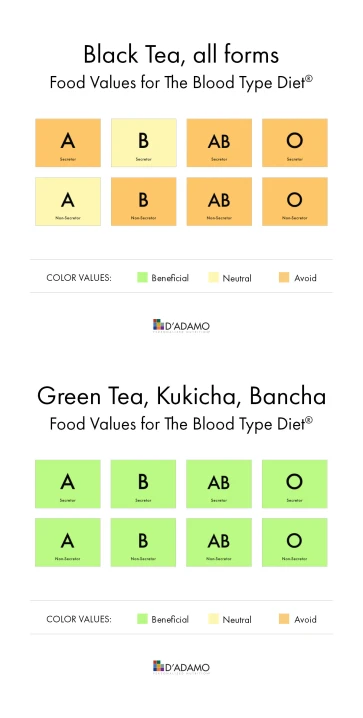
As you can see, black tea is only a viable option for Type B secretors and Type A non-secretors. It's not a Beneficial for anyone. Green tea, on the other hand, is a nutritional superstar. It is beneficial for all blood types, increases microbiome diversity and promotes weight loss.
You may be asking yourself: how can the same leaf from the same plant be so different nutritionally? The answer lies in the oxidation process. Oxidation, in the simplest of terms, is a chemical process that occurs when an ingredient interacts with oxygen. In tea and food in general, this reaction results in the physical browning of the substance and the creation and unlocking of new compounds at a molecular level. It is the process that makes yellow bananas brown over time. Green tea is barely oxidized after it is plucked, keeping it closer to its natural form. Black tea, on the other hand, is exposed to intense oxidation, usually through heat treatments, which causes it to become far darker and different chemically. This is why it is important to always check Blood Type Diet values for foods, even ones you think you know. Processing natural products before consumption can change their health benefits. This is why olives and olive oil have different Blood Type Diet food values, though they come from the same source. A pure and natural starting point, like a tea leaf, does not ensure a healthy end product.
The Best Tea Options for YOU
As the Blood Type Diet food values show, green tea is far and away the healthiest option. After a long search, I found Mr. Itaru's Green Tea, a premium blend that includes toasted rice, matcha and the highest quality green tea leaves. Matcha, a finely powdered green tea, has become increasingly popular in recent years. The inclusion of this ingredient in the blend creates not only a vividly beautiful green colored tea when brewed, but also a higher concentration of nutrients and smoother, more buttery flavor. It is a drink that would benefit any blood type immensely and one that I cannot recommend highly enough.
For people who enjoy herbal and fruity flavors, many blends have been made by creative flavor profilers who seek to find the best harmony of ingredients. Sadly, like most pre-made products, these can be riddled with avoids for The Blood Type Diet. Some of the most common pitfalls are pre-sweetened blends or decaf versions that strip leaves of caffeine with chemicals, rather than gentle and natural processes. With this in mind, I created four blood type specific tea blends to offer dieters healthy, flavorful, and most importantly, pure tea options. Each of the blends combines organic green tea leaves with compliant ingredients for a delicious tea guaranteed right for you. Below are some of the main herbs and flavors found in each blend along with some basic health benefits they provide.
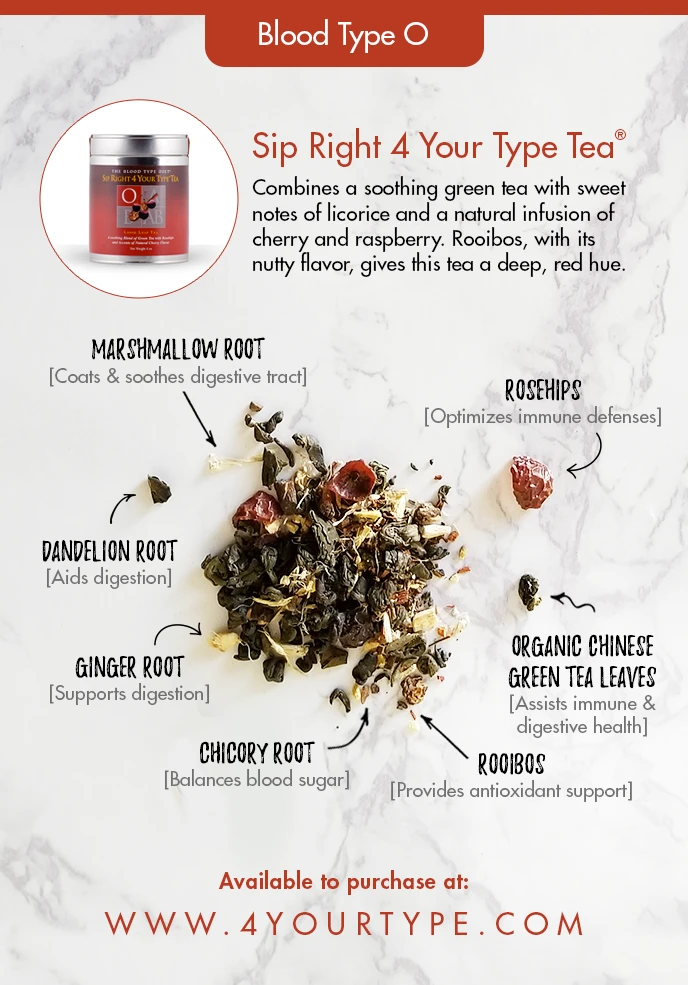
|
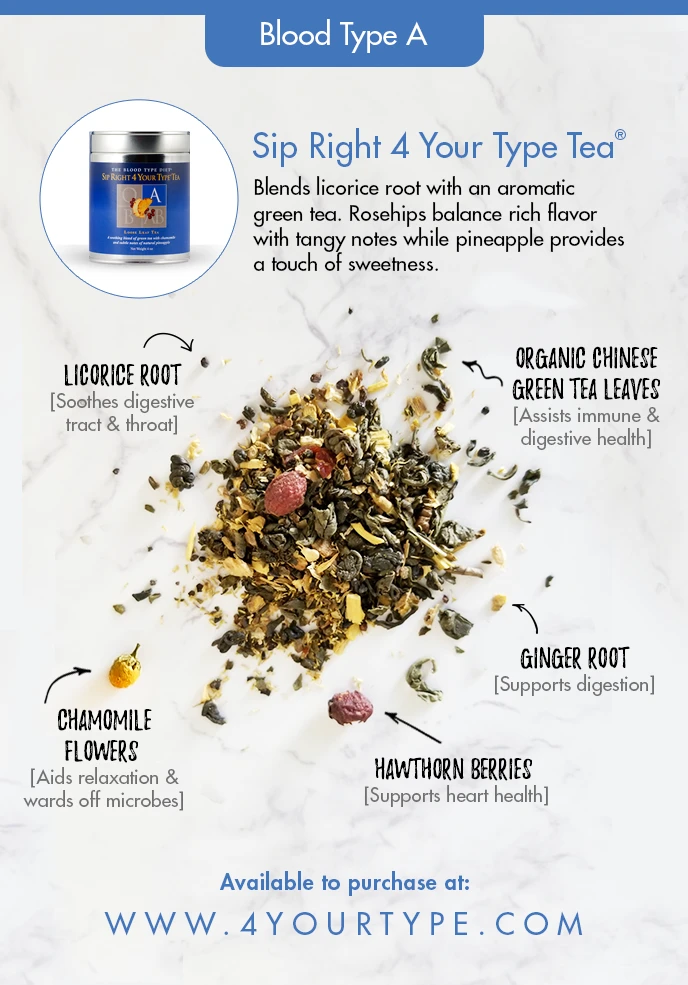
|
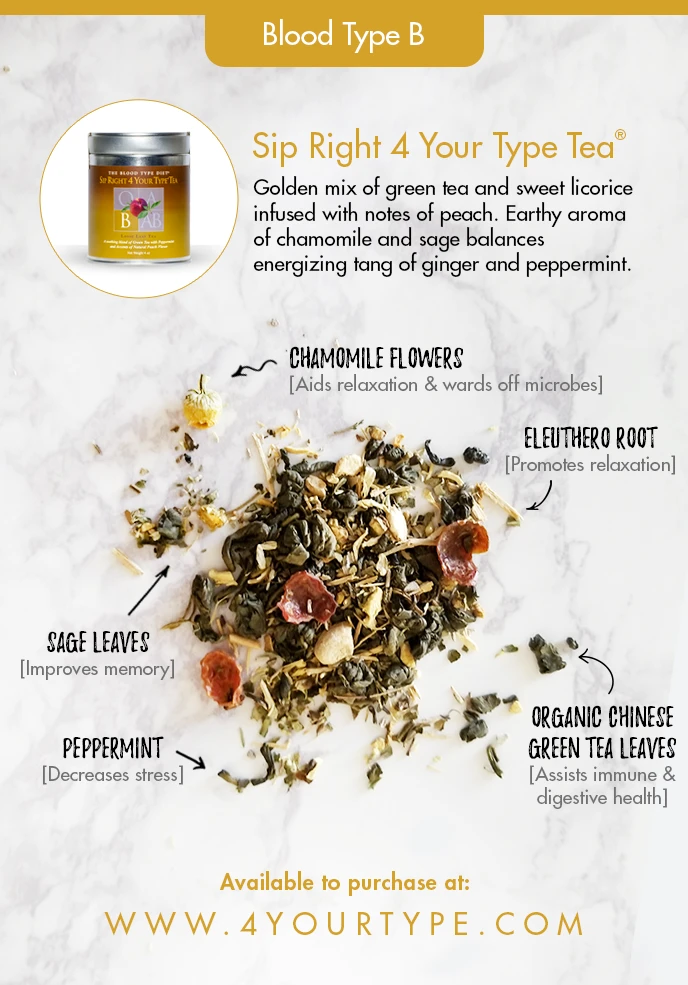
|
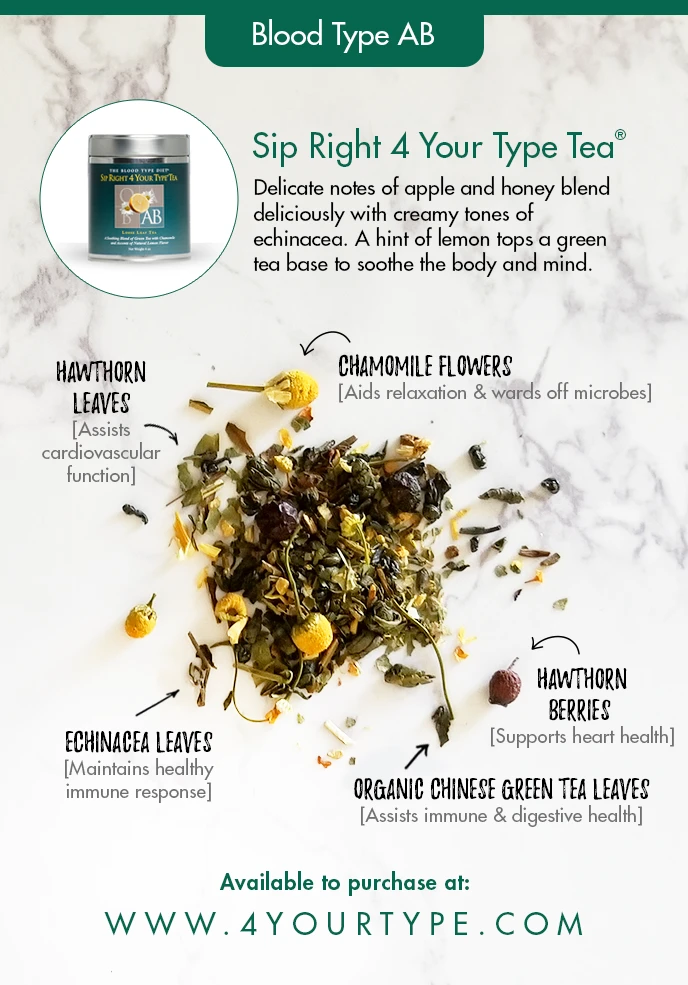
|
These Sip Right 4 Your Type Teas are great options for specific blood types, providing wonderful flavor alongside the health benefits of included herbs and botanicals. They make mixing up your tea routine easy.
Another great way to make tea a more prominent part of your diet is to make iced tea so you can enjoy the health benefits of the beverage through the hottest days of summer. Most people associate iced tea with the artificial sweeteners that are so commonly found in bottled varieties, but it is easy to make healthy and pure iced tea yourself. Check out our blood type specific iced tea recipe so you can brew your own delicious blends at home.
The takeaway message is that tea in general is a wonderful inclusion to your diet, but like anything else, must be personalized to you to truly make a positive impact. Use caution when buying tea blends, as they could be hiding fruits, herbs, sweeteners or chemicals that are not a good fit for your blood type. Stick to pure, natural tea leaves and mixes. Once you dive into the world of tea, you will see just how many unique, flavorful options you have at your disposal for healthy and delicious drinks you can savor all year round.
Other Popular Articles
Refreshing Iced Teas
|
Janet E.
|
5 Best Supplements to Bring on Vacation |
Finding Time
|





